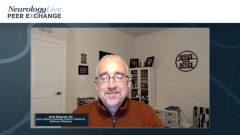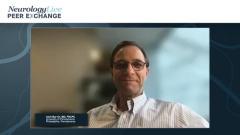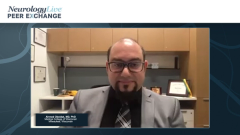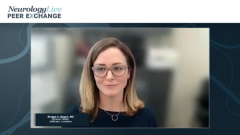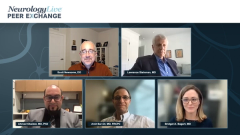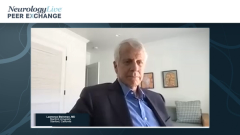
Screening and Diagnostic Considerations for MS
Experts in neurology discuss screening and diagnostic considerations for a patient newly diagnosed with multiple sclerosis.
Episodes in this series

Lawrence Steinman, MD: I want to ask Ahmed a question. Suppose you have a person come into the clinic who has MS [multiple sclerosis]. You do the serology, and it turns out to be positive. She says, “I have an identical twin who doesn’t have MS.” Would you say, “Get that twin in immediately”? If you do the serology and the twin is negative, what are you going to do that’s actionable? Start antiviral therapy?
Ahmed Obeidat, MD, PhD: This is a great question. This speaks to the screening for MS. There are talks about the radiologically isolated syndrome. In people who are family members of people with MS who may not have shown disease symptoms and signs, their MRIs may have lesions that look like MS. One thing that may happen in the future—this is speculation, but let’s say we have someone with MS. They have a twin or someone with very close genetics, like a sibling. They’re interested to see their risk of MS. Do they have MS? Did they have early changes in MS? Maybe some questions would be, should we do an MRI? Should we do an EBV [Epstein-Barr virus] serology test to see if they’re already exposed to this 1 risk factor? Should we do vitamin D levels on them? Should we take all this information and predict the risk if that person doesn’t have changes in an MRI or already has changes in an MRI? That might be something of interest.
If a vaccine develops to prevent the primary infection of EBV, we may be able to intervene. But at this point, I don’t think we have something that would be able to intervene if we’re testing people who don’t show symptoms of MS. In relation at least to EBV, there’s some antiviral therapy that may have some EBV effect. One medication for HIV is a combination medicine. One of its components has some in vitro activity against EBV. Are we going to imply this? Are we going to use those in treatments in the future or in preventing the primary infection? We’re not ready, but this is a very interesting concept to think about in the future.
Scott Newsome, DO: Yes. If we had a vaccine available, and it was safe, I’d say for that family member, absolutely get the vaccine, given that there’s probably a higher genetic predisposition.
Transcript Edited for Clarity
Newsletter
Keep your finger on the pulse of neurology—subscribe to NeurologyLive for expert interviews, new data, and breakthrough treatment updates.

